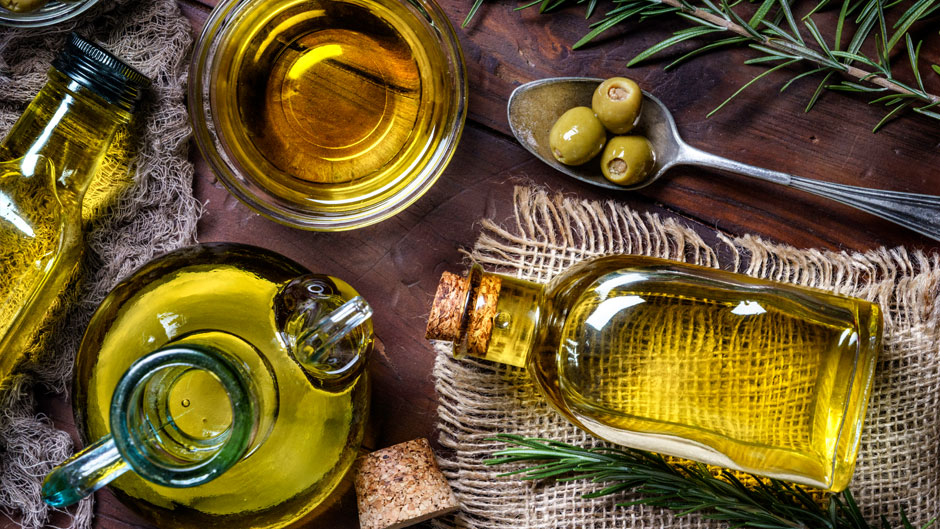For years, the Mediterranean diet has been touted as heart-healthy. Plant-based, full of whole grains, legumes, vegetables, and olive oil, the diet is based on the eating habits of those who live near the Mediterranean Sea.
Fundamental to the diet is the use of olive oil. Experts say that using olive oil, a monounsaturated fat, is healthier than consuming animal fats, and it can help reduce inflammation and heart disease.
“Monounsaturated fats are healthier than saturated and trans fats, like coconut oil and butter,” said Dr. Michelle Pearlman, a physician nutrition specialist and assistant professor in the Division of Digestive Health and Liver Diseases at the Miller School of Medicine. “Consuming olive oil is associated with a lower risk of cardiovascular disease, and decreased cancer, neurodegenerative, and respiratory mortality,” she added.
Now, there is even more promising news about the use of olive oil. A recent study by Harvard University revealed that olive oil can also lower the risk of premature death. The research was the first to focus on United States citizens compared to prior studies that focused on those living in the Mediterranean region.
The study evaluated dietary questionnaires from 60,582 women and 31,801 men in the U.S. from 1990 to 2018. The findings showed that people with the highest use of olive oil consumption (more than seven grams per day) had 19 percent lower risk of total and cardiovascular disease mortality.
Those who consumed more olive oil also had 17 percent lower risk of cancer mortality, 29 percent lower risk of neurodegenerative mortality—such as Alzheimer’s and Parkinson’s disease—and 18 percent lower risk of respiratory mortality, compared with those who never or rarely consumed it.
Eytan Stern, a clinical dietitian with University of Miami Hospital and Clinics in the division of gastroenterology and hepatology, said that he found the Harvard study important because it was very comprehensive.
“The new study is significant because it contains large samples of men and women that were studied over 25 years,” he said. “This is important because it can be a challenge to obtain such large numbers over a long period of time, and this contributes to the strength of the study.”
Pearlman said she considered the study significant because prior studies have focused more on cardiovascular disease risk but not its effect on premature death.
Olive oil contains antioxidants and vitamins such as Vitamin K and Vitamin E, which are important for blood vessel health and immune function, according to Pearlman. It also has polyphenols that, research shows, provide anti-inflammatory and antioxidant properties.
But consumers should be careful when purchasing olive oils since they are not all the same. Reading labels carefully is important, Pearlman pointed out. “Extra virgin olive oil is more pure, unrefined and unfiltered, versus regular olive oil which is more refined and processed,” she said.
The physician and many other nutrition experts recommend that their patients only focus on consuming the majority of their fat intake from poly and monounsaturated fats. They also should limit excessive fat from animal products, which are often rich in saturated fat, as well as trans fats in baked goods and fried foods.
“Better options for fat intake include those from plants—like avocado, nuts, and seeds,” Pearlman said. For people who want to use oils for dressings and marinades, she recommends olive or avocado oil, but not in excessive quantities. Moderation is important, she said, since plant oils can pack on the calories.
Stern warns that olive oil consumption is not the end-all and should be used as part of a balanced diet.
“The overall quality of one’s diet is just as important,” he said. “If someone consumes a lot of olive oil but continues to consume large amounts of added sugars, highly processed foods with food additives, and added sodium, while not meeting recommendations for fruit, vegetable, and whole grain consumption, it is likely that the benefits of olive oil will not outweigh the negative effects of overconsumption of those other foods or nutrients,” he added. “Balance is key.”

